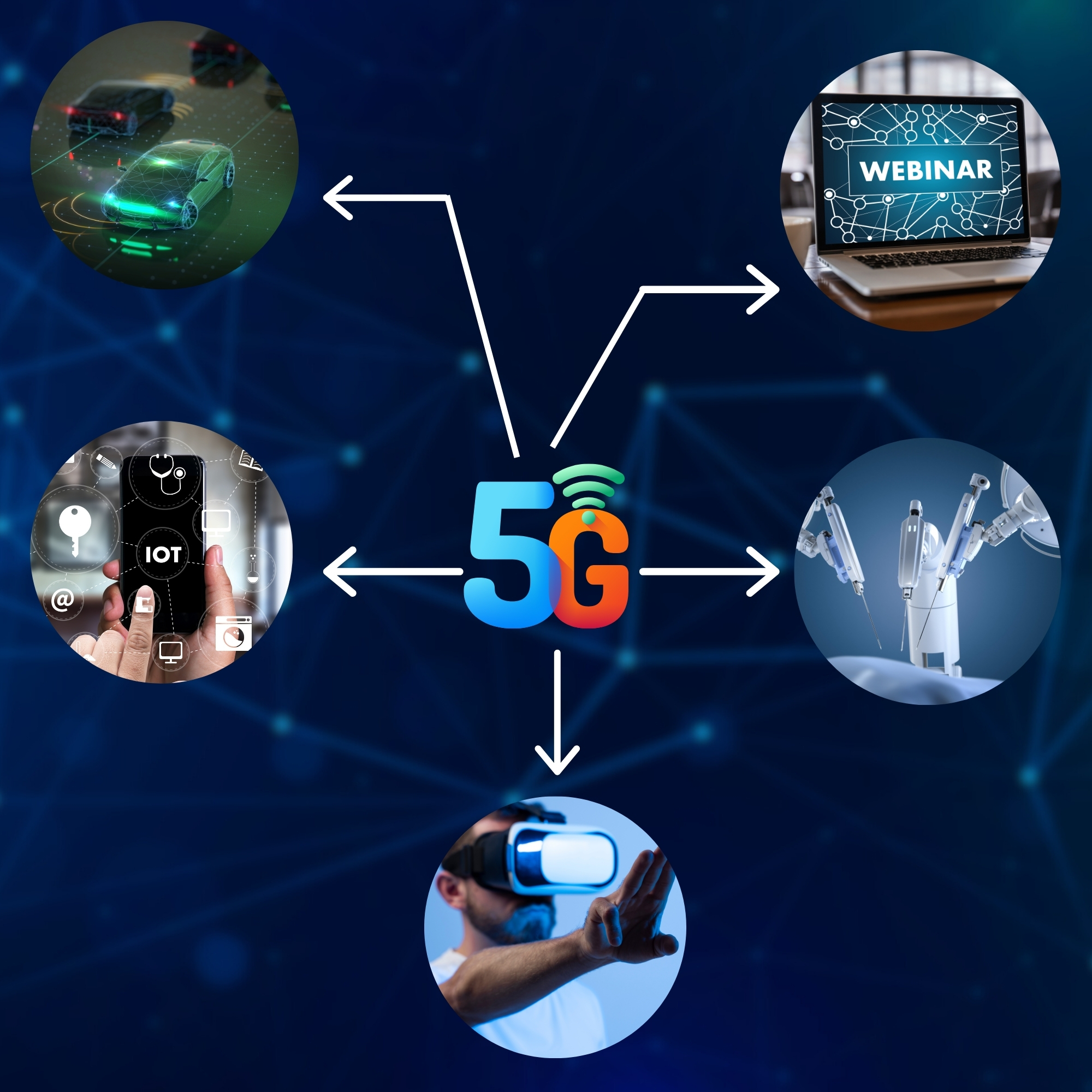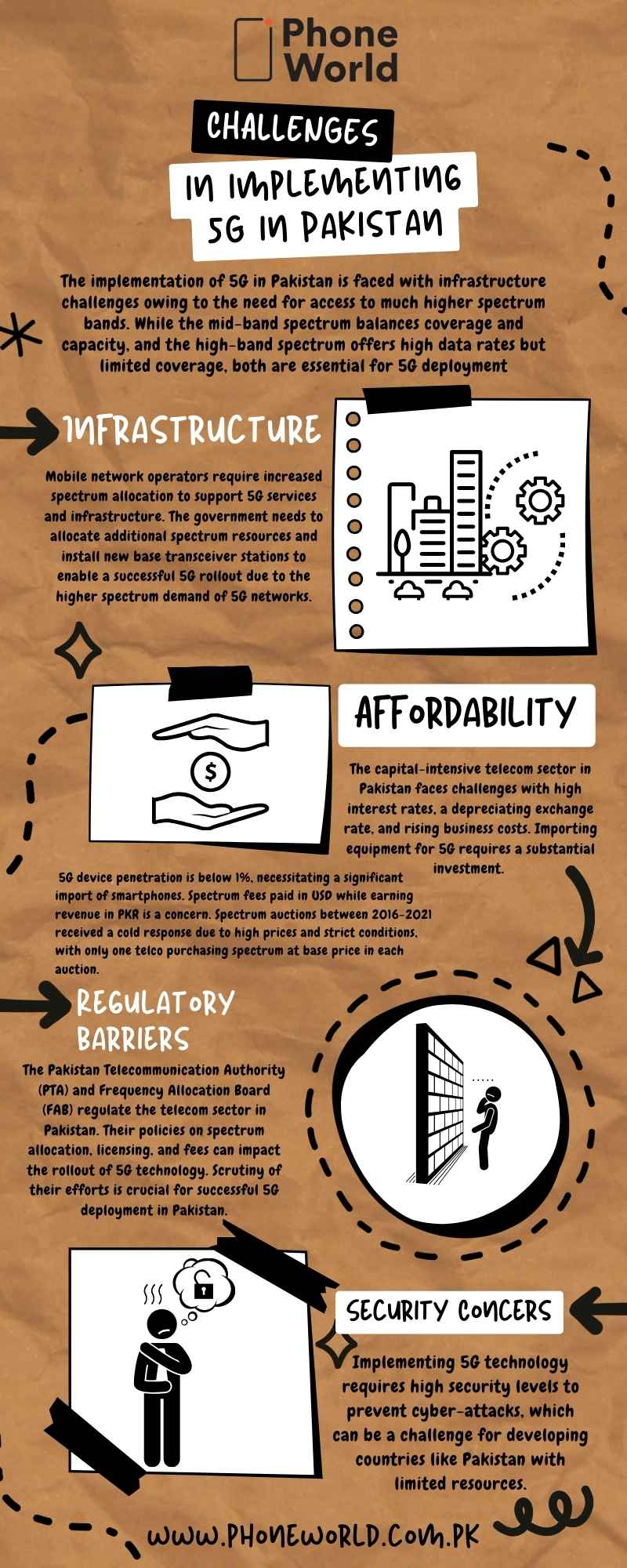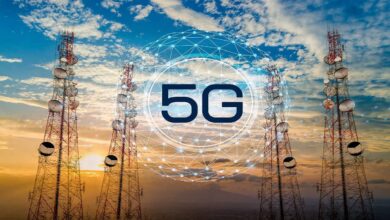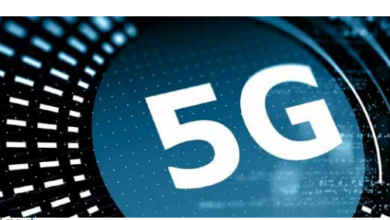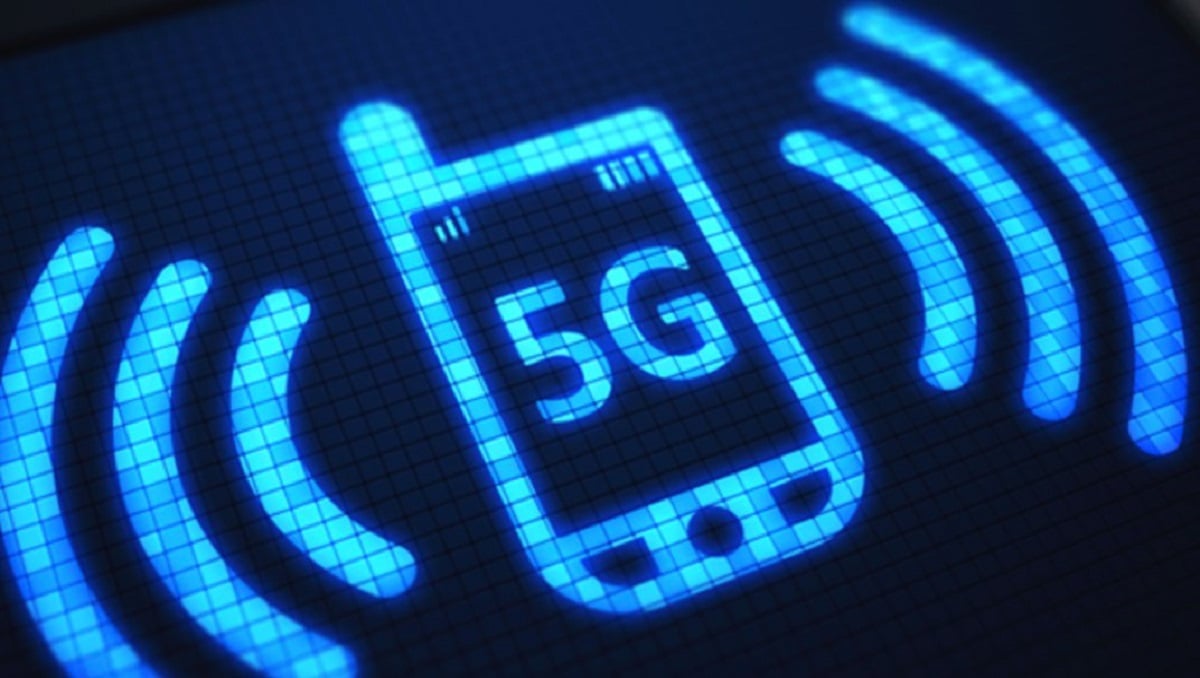5G in Pakistan: All You Need to Know!

5G has remained a major point of discussion in the world of telecommunications for some years now. It’s the fifth generation of wireless technology, and not just an incremental upgrade to the mobile network technology. 5G can transform the way we connect, communicate, and interact with the digital world. There is a lot of hype in Pakistan regarding 5G, with citizens curious about its impact on different industries, internet speeds, and its widespread rollout in the country.
5G as an epitome of Wireless Communication:
5G brings significant advancement in wireless communication, providing much faster data speeds, lower interval time, and improved capacity. 5G gained prominence in the eyes of a normal user with its super-fast data speeds. The 4G LTE (previous technology) offers average download speeds of 10-30 Mbps, the 3G technology offers 2-7 Mbps download speeds, while the 5G can deliver speeds up to a whopping 20 Gbps. It implies that you can download any AAA games or full-length HD movies in seconds. Moreover, the 5G networks have the ability to support multiple devices at the same time. This holds significance as the Internet of Things (IoT) continues to grow integrating billions of devices and sensors.
- Lower Latency (no lag time)
According to a source, the 5G latency is generally less than 1 millisecond, which is nearly 10 times lower than 4G LTE. It implies that 5G is better suited for applications that need real-time communication, such as self-driving cars, virtual reality, and robotic surgeries. So, it plays a vital role in providing emergency services and industrial automation.
The Arrival of 5G in Pakistan
For a long time now, different state executives for IT & Telecom have been making loud claims regarding the 5G launch in Pakistan. The previous minister for IT and telecom, Syed Amin ul Haque, had been making populist narratives about launching 5G in Pakistan. In 2021, the minister claimed that 5G would be launched by December 2022. Then again, in 2022, the minister gave a new date (July 2023) for the launch of 5G. Afterward, the caretaker IT minister Dr. Umar also made claims of launching 5G in a few months. However, we are in the middle of 2024 and far from launching 5G in the country. add backlinks to related news.
Impact of 5G on Various Sectors
Telecommunications
The advent of 5G technology can prove to be transformational for the telecom sector of Pakistan. With its promise of blazing-fast data speeds, and lower latency, 5G will enable telecom operators to offer users lightning-fast download and upload speeds, ultra-low latency for real-time communication, and support for emerging technologies such as augmented reality (AR) and virtual reality (VR).
Healthcare
The healthcare sector of Pakistan can also benefit greatly from the 5G launch. Some of the perks include remote patient monitoring, telemedicine, and access to advanced medical services in remote areas. Moreover, the low latency and high bandwidth of 5G networks can enable remote surgery, where a surgeon controls robotic arms to perform surgery in a different location.
Education
The introduction of 5G in Pakistan can also transform the education sector by enabling faster and more reliable internet connectivity and facilitating immersive learning experiences via augmented reality (AR) and virtual reality (VR) applications. Moreover, the 5G technology can also promote remote learning opportunities for students in underserved areas.
Business and Industry
The rollout of 5G technology in Pakistan is set to revolutionize different industries by enhancing productivity and enabling the widespread adoption of emerging technologies such as the Internet of Things (IoT), artificial intelligence (AI), and autonomous systems.
With its high-speed connectivity and low latency, 5G will allow businesses to optimize their operations via real-time data analytics, remote monitoring, and automation, hence, boosting efficiency and reducing costs. Different industries including manufacturing, agriculture, healthcare, and logistics could benefit from the transformative capabilities of 5G, driving economic growth and creating new opportunities for businesses to thrive in the digital age.
Challenges in Implementing 5G in Pakistan
Infrastructure:
The implementation of 5G in Pakistan faces infrastructure challenges as it requires hefty investments and access to much higher frequency spectrum bands. While the mid-band spectrum balances coverage and capacity, and the high-band spectrum offers high data rates but limited coverage, both are essential for 5G deployment.
Therefore, mobile network operators need substantial spectrum allocation, influenced by factors like demand for 5G services and the requirement for large-scale 5G infrastructure. Therefore, the government must allocate additional spectrum resources, and the installation of new BTS (base transceiver stations) to support a viable 5G rollout, as 5G networks require more spectrum as compared to the previous wireless technologies.
Affordability:
The capital-intensive telecom sector faces challenges with high interest rates, a depreciating exchange rate, and rising business costs. Therefore, importing the necessary equipment for 5G requires a huge investment. In addition, a source said that the 5G device penetration in Pakistan currently stands below 1 percent, requiring a significant import of 5G smartphones. A conservative estimate suggests a cost of around $2 billion, a significant portion of the current foreign exchange reserves. One another thing that has remained a concern for the telcos for a long time is that they have to pay the spectrum fee in USD while they earn revenue in PKR.
Moreover, a careful analysis shows that the spectrum auctions held between 2016 and 2021 received a cold response. This is because of the high prices and strict conditions from the government. In each of the spectrum, only one telco purchased the spectrum at the base price.
Pakistan Lags Behind in 5G Readiness:
In 2023, the World Bank published its report on Telecommunications Advisory Assistance and the 5G Readiness Plan for Pakistan. It offered recommendations that can help the country in rolling out 5G. These include,
- The provision of large, affordable spectrum blocks is essential for 5G deployment.
- The provision of broader optical fiber access.
- The widespread penetration of budget-friendly 5G smartphones.
Unfortunately, the country lags far behind in all of these prerequisites for rolling out 5G.
Regulatory barriers:
The telecom regulators in Pakistan include the Pakistan Telecommunication Authority (PTA), and the Frequency Allocation Board (FAB). The policies related to spectrum allocation, licensing, and fees can create significant barriers to the deployment of 5G technology. Therefore, PTA & FAB must scrutinize their efforts in the deployment of 5G in Pakistan.
Security concerns:
The implementation of 5G technology also requires high levels of security to control cyber-attacks and safeguard against potential threats. Therefore, it can prove to be challenging for developing countries like Pakistan with limited resources.
Strategies Pakistan can adopt to Bring 5G into the country
Limited Use Licenses:
In this strategy, the government issues limited licenses for spectrum use in particular areas and timeframes, thus lowering the upfront costs for telcos, and promoting competition.
Single Infrastructure Company License:
This strategy involves licensing one infrastructure provider to lease it to all MNOs to speed up 5G deployment.
Trial Licenses to OEMs for R&D:
Trial licenses to OEMs can be another way of speeding up 5G deployment. However, it may limit capacity and pose IP-sharing challenges.
License Now, Pay Later:
Telcos can also deploy 5G quickly with the License Now and Pay Later scheme. It will ease financial burdens but carries risks for both operators and the government.
Revenue Share License:
The government can also implement a revenue share model for spectrum licensing. It will enable the governments to generate additional revenue for public programs and also share deployment risks with operators.
Following models of Developed Countries in the Region:
Different models for 5G deployment have been adopted in countries of the Asia Pacific region like South Korea, Japan, and Singapore. These include government-led initiatives and public-private partnerships, driving rapid adoption and implementation of 5G technology.
Visit this link to read more about each strategy including their strengths and weaknesses.
Conclusion:
5G holds immense potential for Pakistan, as it offers unprecedented opportunities for economic growth and innovation. Despite the challenges and delays in 5G deployment, the potential benefits of 5G are undeniable. They range from faster internet speeds and lower latency to transformative applications in healthcare, education, and industry. However, to fully utilize the potential of 5G, concerted efforts are needed from both the government and the private sectors.
Frequently Asked Questions
Q. What are the benefits of 5G for consumers and businesses in Pakistan?
A. 5G brings a wide range of benefits, including faster internet speeds, improved network reliability, and support for advanced technologies like IoT and AI. Moreover, it offers various opportunities for innovation and economic growth in different sectors such as healthcare, agriculture, etc.
Q. How will 5G impact internet speeds and connectivity in Pakistan?
A. 5G promises to deliver comparatively much faster internet speeds and more reliable connectivity. Therefore, it enables users to download and upload data at unprecedented rates.
Q. Are there any health concerns associated with 5G deployment in Pakistan?
A. There are a few studies that have raised concerns regarding the health effects of 5G radiation. However, numerous scientific studies and regulatory bodies haven’t discovered any solid evidence linking 5G technology to adverse health effects.
Q. Will existing smartphones and devices be compatible with 5G networks in Pakistan?
A. To access 5G networks, users will need compatible devices that support 5G technology. While newer smartphones and devices are being released with 5G capabilities, older models would not be compatible.
PTA Taxes Portal
Find PTA Taxes on All Phones on a Single Page using the PhoneWorld PTA Taxes Portal
Explore NowFollow us on Google News!